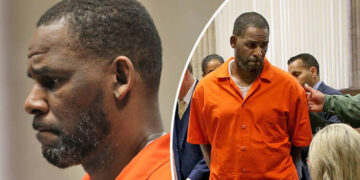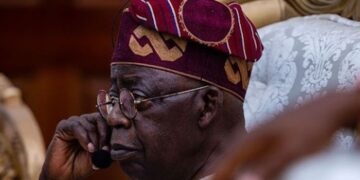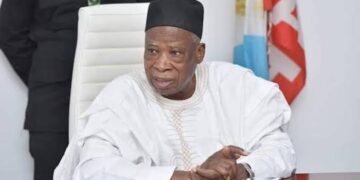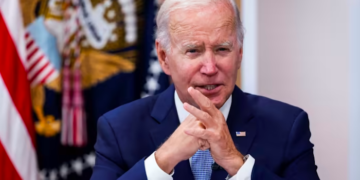Boris Johnson would resign as Conservative party leader on Thursday, the BBC reported, paving the way for a successor to replace him as British prime minister following the departure of scores of ministers from his scandal-plagued cabinet.
“Boris Johnson will retire as Conservative leader today; he will remain prime minister until the fall,” BBC political editor Chris Mason stated, adding that a Tory leadership election will be held this summer, with the winner succeeding Johnson in October.
A spokesperson for Downing Street stated that the prime minister “will address the nation today.”
Keir Starmer, the head of the opposition Labour Party, described Johnson’s decision to resign as “excellent news,” but he stated that a “real change of administration” was required.
Johnson clung to power despite an avalanche of over fifty government resignations.
But the resignations of education minister Michelle Donelan and finance minister Nadhim Zahawi on Thursday, after only two days on the job, appeared to sway the balance.
Brandon Lewis, minister for Northern Ireland, was the first cabinet minister to leave on Thursday, stating that Johnson had “beyond the point of no return.”
The Conservative leader replied fiercely to calls from his supporters and cabinet colleagues to resign by dismissing minister and erstwhile close ally Michael Gove late on Wednesday.
Reportedly, the Communities Secretary was the first to inform him that he must leave for the interest of the Conservative party and country, with a source close to Johnson describing Gove as “a snake” to the BBC.
According to The Sun, Johnson informed his colleagues that they would have to “dip (their) hands in blood” to remove him from office.
Johnson’s communications director when he was mayor of London, Will Walden, stated that the prime minister “does not and will not embrace change.”
“He doesn’t do sorry. And will not. And he is not the type to resign. Certainly not if he can help it “He published in The Times.
The events of Thursday, however, appear to have forced his hand.
– “No functional government” – The resignations of finance chief Rishi Sunak and health secretary Sajid Javid on Tuesday night triggered a chain reaction of resignations.
They resigned after Johnson apologized for hiring prominent Conservative MP Chris Pincher as deputy chief whip, who was forced to resign following allegations that he drunkenly molested two men.
After Pincher’s departure, days of shifting explanations ensued.
Downing Street first disputed that Johnson was aware of the past charges, but the defense crumbled when a former top civil servant stated that Johnson was informed of another event in 2019.
Critics of the Conservatives asserted that the Pincher affair pushed many of them over the edge, as they were forced to defend what they perceived to be Johnson’s additional lies.
Wednesday, upon his return to Downing Street from a lengthy questioning by a parliamentary committee, Johnson was met by members of his cabinet.
According to reports, the delegation included interior minister Priti Patel, a staunch conservative.
Camilla Cavendish, the former head of Downing Street’s Policy Unit, told the BBC that Britain no longer had “a functioning government,” and calls for Johnson to go continued late into the night.
Attorney General Suella Braverman told ITV that she would not quit, but that “the scale has now tipped in favor of declaring that it’s time to go.”
She also stated that she will run for a leadership position.
“Goodbye, Boris”
Johnson has been plagued by scandals for months, including lockdown-breaking parties in Downing Street.
The prime minister, who received a police fine for the Covid lockdown-breaking “Partygate” scandal, faces a parliamentary investigation on whether or not he deceived to members of parliament about the disclosures.
A month ago, Johnson barely survived a vote of no confidence by Conservative MPs, which typically would prevent him from being challenged for another year.
The important “1922 Committee” of non-ministerial Conservative MPs apparently want to amend the regulations, with its executive committee stating on Wednesday that it will elect a new roster of members the following week.
Wednesday in parliament, Johnson vowed to continue, arguing that the country required “steady government.”
However, while addressing members of parliament, Javid encouraged other ministers to quit.
He addressed a silent House of Commons, “The problem begins at the top, and I don’t believe that will ever change.”
At the conclusion of his address, the audience sang “Goodbye, Boris.”





























